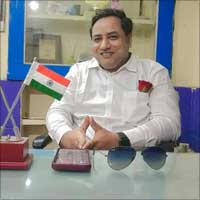In women over 35 years the birth control pills can raise the risk for stroke but this risk is very small. However if there are associated conditions like blood pressure, diabetes or raised cholesterol or if you smoke, then the pills can increase the risks several fold. It may then be advisable to use another form of contraception.
A mini-stroke, is nothing but a transient ischemic attack (TIA). Many people do not even realize that they suffered a stroke. However a mini-stroke may herald a full-blown stroke, hence recognizing it and seeking immediate help is important.
FAST is an acronym used to help recognize the signs of a stroke quickly:
F: Face drooping
A: Arm weakness
S: Speech difficulty
T: Time to call emergency services and take action
Yes, the incidence of stroke in young adults has been increasing due to unhealthy lifestyle, hypertension at early age and drug abuse. In fact rarely stroke can occur in infants and children too.
This is extremely rare but there have been documented cases of "laugh-induced strokes" occurring in individuals with pre-existing weak blood vessels in the brain.
Rare but in certain types of migraines, particularly migraines with visual disturbances or aura, have been associated with a slightly higher risk of stroke, especially in younger women.
Rarely strokes can occur after chiropractic neck adjustments and this may be due to injury to the arteries in the neck, leading to a disruption in blood flow to the brain.
Though rare but a stroke can occur during a visit to a saloon or beauty parlour. It occurs when a person goes for hair shampoo and the head is bent backwards into the sink. If the head is bent excessively it can compress the vertebral arteries from the neck going to the brain. This can cause obstruction to blood flow or damage to the inner layer of the blood vessels and result in clot formation and stroke.
Sleep apnea, have been linked to an increased risk of stroke as in this condition there are interruption in breathing leading to low oxygen levels and increased strain on the heart and blood vessels
Yes strokes can have a genetic component however more important are lifestyle factors, such as diet, exercise, and smoking. If there is a family history of stroke, do consult a healthcare professional for personalized risk assessment and guidance.







